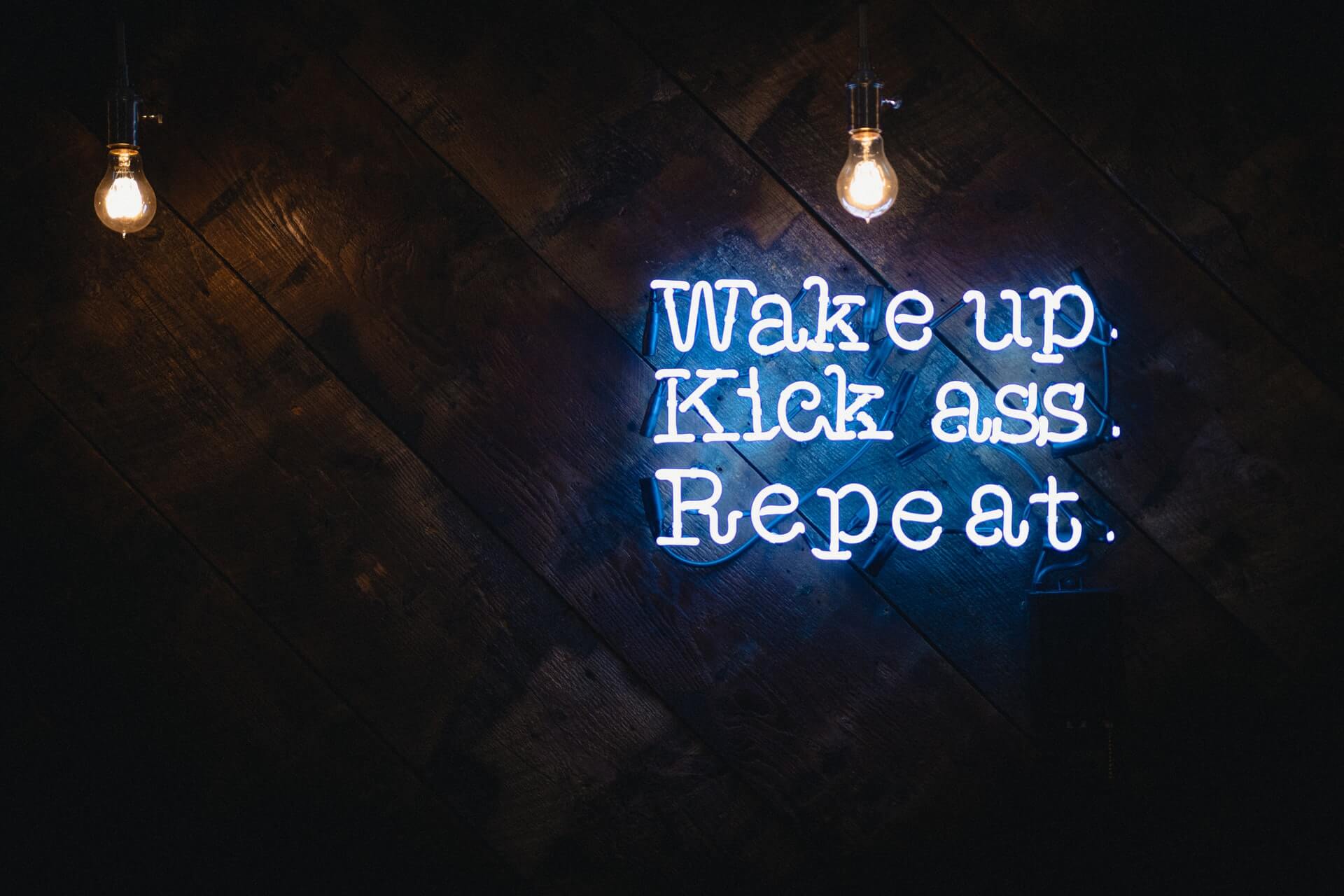Entrepreneurship with Purpose: Your Why, How & What
by David Klemt

Don’t freak out! This is subtext, and a nod to the Death & Co. brand and their Big Horn Sheep cocktail mug.
Not every operator can transform their vision for owning a bar into building a hotel, so when someone who does just that wants to talk, it’s wise to listen.
I can’t be sure if the Death & Co. team knew they were building an empire when they opened their first cocktail bar. After listening to David Kaplan’s keynote at the 2024 Flyover Conference, I do believe the team laid the foundation to ensure their success before ever greeting their first guests.
Further, I like to think that opening in NYC on NYE and ushering in 2007 with a brand-new concept embodies the Death & Co. ethos. Literally, the bar and its first patrons marked the passage of time from one year to the next. Figuratively, death symbolizes change, and Death & Co. as a brand is certainly a metaphor for revolution and metamorphosis.
As a bar, Death & Co. is noteworthy for the significant contributions it made to the modern Cocktail Revival. Among the craft cocktail bar’s New York scene peers were Pegu Club, Milk & Honey, and Employees Only.
According to Kaplan, six years went by before the team even considered taking on a new location. In 2018, Death & Co. Denver opened inside The Ramble Hotel. A year later came Death & Co. Los Angeles. Four years after opening in LA, in 2023, the craft cocktail brand entered the Washington, DC, market. Announced a couple of weeks ago, there will be a fifth outpost in Seattle.
And those are just the Death & Co. locations.
Why, How & What
The type of unrelenting success achieved by the Death & Co. team doesn’t happen overnight. It takes drive and clarity, and a ruthless dedication to understanding purpose, process, and outcome.
Expanding on the point of clarity, Death & Co. falls under the Gin & Luck umbrella, of which Kaplan is the CEO.
During his keynote, titled “Crafting Success: The Journey of Purpose-Driven Entrepreneurship,” he shared his personal and professional approaches to business. Along with being engaging and informative, Kaplan is also transparent.
For example, he shared his personal core values and those of the Death & Co. brand. Kaplan’s are the pursuit of excellence, meaningful work, relationships, challenges, and creativity. As a brand, Death & Co. core values are curiosity, pursuit of excellence, Always Be Knowing (ABK), contagious joy, and connection.
But, I get ahead of myself. To start his keynote, Kaplan explained a few key terms and how they relate to one another. A person’s why, personal or professional, is their purpose for doing something. On a grander scale, their why can be the purpose that drives their entire life.
How is process, the systems and procedures that will move one forward. What, in this context, is outcome, or the result that a person is working to achieve.
As Kaplan explained, when one comes to understand their purpose, that leads them down the path of understanding and developing their process. Ultimately, understanding the why and how leads to an understanding of their what.
Do the Work
Among the excellent points made by Kaplan was this: None of us are born with an understanding of entrepreneurship (including those who make being an entrepreneur look so easy).
Rather, in Kaplan’s opinion, we’re all faking it until we make it. This goes for business partners and investors, as well. Basically, people who are faking it until they make it are walking into rooms with people who are doing the same, or have done so to get into a particular room themselves.
That doesn’t mean that every new business owner is being disingenuous. Nor does it mean that every partner is being deceitful about what they bring to the table.
In my interpretation of what Kaplan shared during his keynote, every entrepreneur—until they’ve achieved their desired outcome—is an unknown quantity. They need to develop the confidence to share their vision clearly to their future leadership team, front- and back-of-house teams, partners, investors, and guests.
So, how does an entrepreneur develop an optimistic view of the challenges they’re about to face? And how do they gain the confidence to inspire others to buy into their ideas?
There are a number of exercises that will help a person understand their identity, path, and another “why.” Another way to state this is that one can find their true calling, take psychological ownership of their journey, and develop the entrepreneurial passion to make their dream a reality.
However, to gain this understanding, people need to put in the work.
Effective Exercises
If one works hard now, they can develop the psychological capital necessary to take on difficult challenges in the future.
In the context of Kaplan’s keynote, this means if a person works toward self-awareness today, they’ll put themselves in a better position to be a successful operator before they open their doors for the first time.
There are all manner of self-defining activities and questions that can help a person understand who they are. As importantly, they can give a person an idea of their true aspirations. A few examples are completing the University of Pennsylvania’s Values in Action Strength Test, practicing mindfulness (being present in the moment), journaling, and meditation.
As far as self-defining questions, here are a few examples:
- What are my dreams and goals?
- What’s my biggest strength?
- What’s my biggest weakness?
- Am I the type of person who makes decisions based on intuition or logic?
Again, that’s barely a handful of the questions one can ask themselves to gain self-awareness.
Another important exercise is to identify personal and professional core values. Kaplan recommends people do this in a setting outside of their normal routine. So, not at home, their current workplace, a cafe one frequents regularly, etc.
Core Values
When a client signs on with KRG Hospitality, part of the process includes identifying core values, as well as creating a mission statement. This important exercise is known as Napkinomics.
Questions and prompts include:
- How important is growth to you, professionally and personally?
- Where do you want to see the brand within the next five years?
- Describe a similar brand, and why you’re drawn to it.
Helpfully, Kaplan shared his approach to identifying core values during his Flyover keynote.
First, he considers peak experiences. Then, crucially, he flips that on its head and recalls negative experiences. Another key step is considering important aspects to experiencing fulfillment. Ask yourself what feels essential, adding context to each answer. At the end of this exercise, one should have a list of personal core values. (As a reminder, Kaplan’s and Death & Co.’s core values are shared at the top of this article.)
There is, however, another step that Kaplan shared during his presentation: Revisiting core values.
As he said, a person can—and I’ll add absolutely should—revisit their personal core values. They’ll likely change throughout the years. So, a person should update them from time to time.
Also, Kaplan advises people to give themselves grace; one should realize that they may not live their core values every day of the week. That’s perfectly acceptable. However, if someone finds that they’re routinely not living their core values, it’s time to revisit and update them.
The Mission
During his keynote Kaplan explained that a mission statement should encompass several key components. These are one’s skills and abilities, personality traits (a.k.a. how they operate), values, dreams, and passions.
A mission statement is a declaration of purpose, which is why it’s such a powerful tool. Again, we walk KRG Hospitality clients through this process utilizing Napkinomics.
During his keynote, Kaplan shared the following fill-in-the blanks-style sentence. It should provide someone with an idea of how to identify a personal or brand mission statement.
“I will [action] for [audience] by [skills] to [desired result].”
From there, one can polish and restructure the sentence to craft a non-negotiable declaration of purpose that fits them or their brand. For example, Kaplan shared Death & Co.’s mission statement:
“Creating experiences and connecting people through cocktail-anchored hospitality.”
Providing context, Kaplan shared a long-form version of the above: “We create experiences to foster and allow for deeper human connection through cocktail anchored hospitality.”
With the mission statement in place, Kaplan, his partners, and the Death & Co. team have been able to identify and work toward a key goal:
“To become the most established cocktail-anchored hospitality company in the world by December 31, 2028.” For the eagle-eyed, that’s a deadline of 20 years after the NYC bar’s grand opening.
Now, “most established” can be seen as somewhat nebulous. So, the Death & Co. team has identified metrics to ensure their lofty goal is SMART (specific, measurable, achievable, relevant, and time-bound):
- A great place to work.
- The thought leader in the space (being part of the overall hospitality conversation, and helping lead others).
- A healthy, profitable business.
- Regionally and globally recognized.
Tie it Together
Considering the symbolism of death as change, you and your team are undergoing a metamorphosis.
Taking the steps to pull your concept out of your imagination and bring it to life involves change. Changing your personal relationships, your position within the hospitality industry, your relationship with risk… Changing your life, and significantly so.
Further—no pressure—you’re also transforming the lives of everyone who buys into your dream and decides to work with you. You’re asking people to bet on you as a leader, and buy into your vision. Whoever accepts that challenge is risking a lot, and this cannot be overstated.
Keeping your business alive and moving forward also requires change. It will have to evolve with the times and guest expectations. And should you scale your business you’ll once again face significant changes.
Becoming an entrepreneur requires the “death” of your previous life. In the infancy of this process, you’re going to feel discomfort. You may feel fear, and you’ll feel uncertainty. A deep understanding of why, how, and what are crucial to navigate the process and work through those feelings.
After all, if you don’t know what you’re working toward, why would you endure this challenge? How will you achieve your “what” if you haven’t developed the process to get there? And without a “why,” no entrepreneur’s vision becomes reality.
There’s no reason to fear the death of your life prior to the beginning of your journey as an entrepreneur and operator. The only things to fear are never taking the first step, and not starting off in the strongest position possible.
Sit down today to identify your why, your how, and your what. If you need help, we’re here for you.
Image: Shutterstock. Disclaimer: This image was generated by an Artificial Intelligence (AI) system.
Interested in checking out the Death & Co. Big Horn Sheep cocktail mug? Click here.













